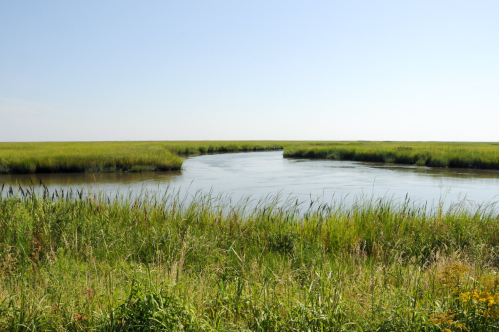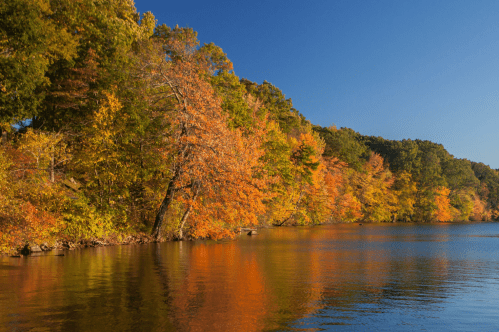When considering the Land of 10,000 Lakes, images of pristine lakes, tallgrass prairies, wide rivers, and large swaths of unspoiled Northwoods forest may dance across your mind. But you probably wouldn't imagine sand dunes in Minnesota. Well, we don't have a lot of them, but in the places where they do exist, sand dunes are important parts of the ecosystem. One such spot can be found in southeastern Minnesota. Let's take a look at Kellogg Weaver Dunes Scientific and Natural Area ("SNA").
Kellogg Weaver Dunes SNA is located on a shelf of land between the Mississippi River and the bluffs that tower over it, near the town of Kellogg.
At first glance the dunes may seem more like rolling prairie, but make no mistake - the plants you see are rooted in sand.
Scientists estimate that these dunes were formed 14,000 to 18,000 years ago, as the glacial river that carved the Mississippi valley receded.
Sands were deposited along the river basin and blown by wind into the dune complex's present location.
Some of the dunes at Kellogg Weaver SNA are as high as 30 feet above the surrounding dry barrens prairie.
A nearby wetlands area is also part of the protected SNA.
Together, these parts of the SNA are the single most important nesting area for the protected Blanding's turtle in Minnesota.
If You Only Have One Day to Visit This Small Town in Maine, Here’s Everything You Absolutely Can’t Miss

If You Only Have One Day to Visit This Small Town in Massachusetts, Here’s Everything You Absolutely Can’t Miss

If You Only Have One Day to Visit This Small Town in Maryland, Here’s Everything You Absolutely Can’t Miss

Turtles travel from the wetlands to nest and lay eggs in the dunes. Biologists estimate as many as 1,000 - or 20 percent of the state's population - Blanding's turtles lay their eggs within Kellogg Weaver Dunes SNA.
Other rare and protected species also make their homes in the SNA.
For example, the rough-seeded fameflower, which is considered endangered in Minnesota, blooms for only a few hours every day during a few weeks in the summer. All of theses species help to make Minnesota's sand dunes the unique and important ecosystems that they are.
For detailed maps or more information about Kellogg Weaver Dunes SNA, visit the DNR's website or download AllTrails Plus for offline maps and other features. A day of exploring the dunes could certainly make a person hungry. Since you're nearby, pop into the Olde Triangle Pub in Wabasha for a hearty meal and a pint of refreshment after a day at the dunes.
Have you visited Kellogg Weaver Dunes SNA or other sand dunes in Minnesota? What are some other unusual natural wonders one wouldn't expect to find in the Land of 10,000 Lakes?
Subscribe to our newsletter
Get the latest updates and news
Thank you for subscribing!
























